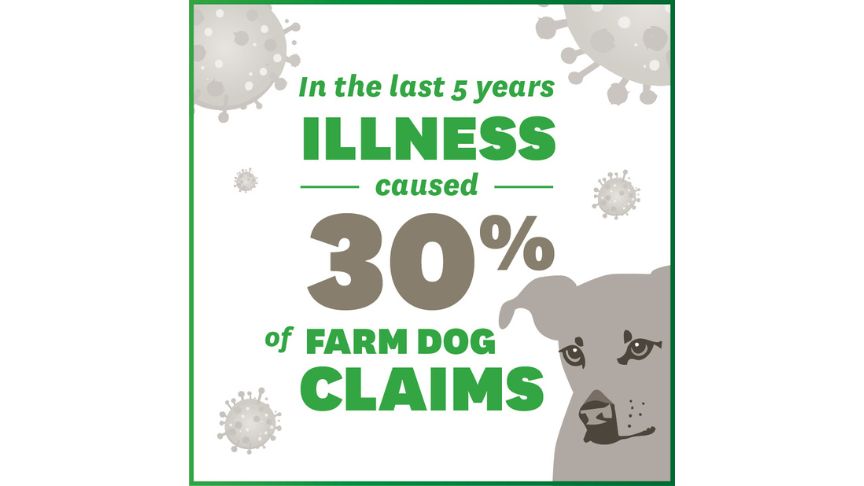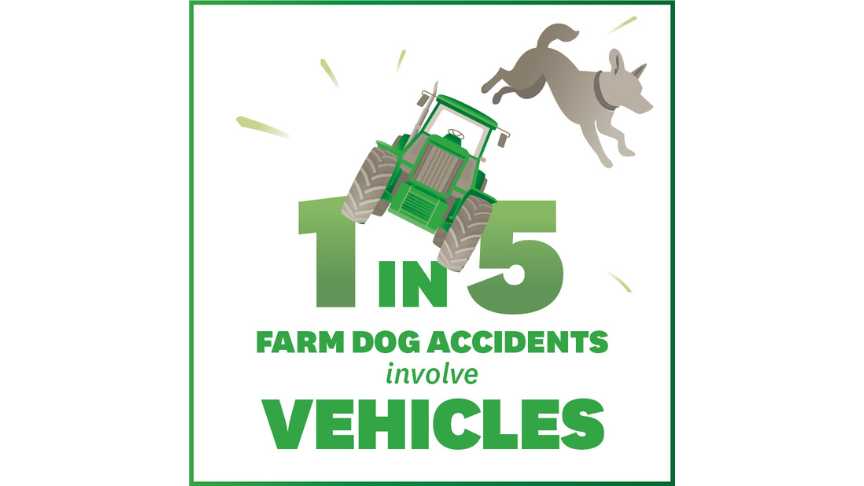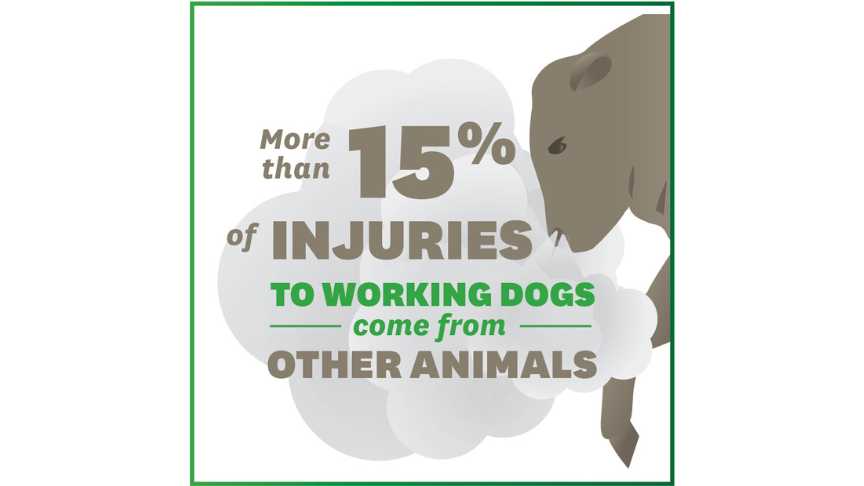Gastric Dilation-Volvulus
Gastric Dilation-Volvulus (GDV), commonly seen as bloating or twisted gut, is responsible for almost one-third of all farm dog illness claims. GDV is most common in large, deep chested dogs, such as Huntaways. To reduce the chances of GDV:
- Feed your dogs more frequently instead of one large meal.
- Supplement feed with a premium mix to allow them to eat less but have more energy.
- Allow at least an hour to let food settle before setting your dogs to work.
- Keep an eye out for symptoms like bloated abdomens, attempted vomiting and a hunched-up appearance. Contact your veterinarian immediately if you see these symptoms.

Bones
Dogs commonly require surgery for bones getting lodged in their intestine. Only feed your dogs bones that are too large to be chewed up or swallowed.
Preventative health measures
It’s important to talk to your veterinarian about preventative health care and elective surgeries that may help prevent more serious health issues further down the track. For example, vaccinations against Canine Parvovirus and elective surgeries (such as neutering) that may help prevent pyometra.
Keeping dogs safe around vehicles
One in five farm dog accidents involve vehicles - and it’s not just on the road. A large amount of accidents also happen on farm.
- Watch for vehicle movement when droving stock across roads.
- Keep your dogs safely secured in a ute dog box/crate when traveling on the road.
- Slow down around dogs, especially when driving large farm vehicles such as tractors, or when towing trailers. Your vision can often be impeded and dogs can often walk/run into blind spots.

Unfamiliar stock and dogs
More than 15% of injuries to working dogs come from other animals , especially cattle in yards. Cattle that are unfamiliar to the dog (and vice versa) are of particular risk. Take extra care with stock that have recently arrived on the farm.
